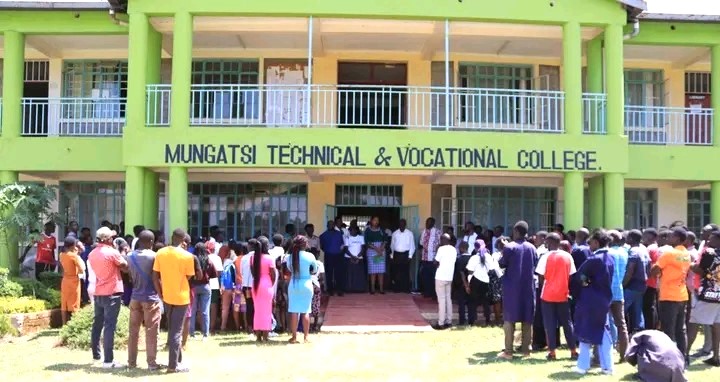The Technical Vocational Education and Training (TVET) sector has declared maximized industry partnerships to boost the national development.
This was revealed by the TVET PS Dr. Esther Muoria, who said that a renewed commitment to fully integrate industries into TVET institutions will ensure trainees are absorbed immediately upon certification.
PS Muoria, speaking during a two-day quarterly meeting held at Kiambu National Polytechnic (KINAP), to a gathering that included institutional heads, Regional Directors of TVET, and CEOs from regulatory bodies like CDACC, KS TVET, TVET Authority, and KNQA, emphasized that the meeting affirmed a “collective commitment to redefining the role of TVET in national development.”
“We are going to put our best foot forward to ensure our institutions as much as possible are self-sufficient, and we are going to do our best and invite industries into our institutions so that our young people can be able to do dual training,” Muoria stated.
The PS added that the strategy involves leveraging the existing human resources, students, and machinery within TVET centers.
ALSO READ:
Anxious JSS intern teachers urged to be patient as gov’t works on their confirmation
The conversation on industry integration will be guided by scholars, including Professor Paul Ndirangu Kioni, formerly of Dedan Kimathi University, and a colleague from the Massachusetts Institute of Technology (MIT).
“We need to partner with the industries so that we have investors who have the market to be able to market the products that we should be able to come up within the institutions,” Muoria said.
A significant portion of the conference focused on the need for a fundamental shift in attitude and leadership. Yohan Kim of the International Youth Fellowship, through the Mind Education Program, emphasized the power of mindset in shaping leadership resilience and innovation.

Kim likened mindset to “software,” arguing that without “upgrading our mental software,” even the best systems cannot transform.
PS Muoria drew a striking comparison, noting that at Kenya’s independence in 1963, the country was financially ahead of South Korea. “Where did we go wrong? We discussed on how they were able to transform their thinking strategically and transformed their country,” she noted.
Muoria stressed that TVETs are the key engine to move the country towards the Vision 2030 transformation agenda. Consequently, TVET heads and officials must first transform their own minds and training methods to equip the nation with the necessary skills.
While the sector has seen a promising surge in enrolment from 300,000 to 800,000 in the last two years, PS Muoria acknowledged that more needs to be done.
ALSO READ:
Varsity lecturers, staffs call off strike after striking deal with government
“Yes I agree we should be doing much better than that in enrolment considering the number of young people we have out there who are not in education, employment or training,” she said, raising a critical question: “The question is why they are not coming?”
She highlighted the particular challenge in regions like the Coast, where only about 10% of youths proceed to university.
The attendees also lauded the reforms taking place under the Competency Based Education and Training (CBET) curriculum.
TVET is moving away from the previous three-year training model. Now, trainees can be certified for the job market after as little as three months of training and assessment, reflecting the new focus on industry demands.
Sigei confirmed that some TVET institutions boast better machinery than found in some industries, cementing the case for partnership.
“The dual training requires 50% of the student is training in the institutions and 50% is working in the industry,” he explained, underscoring the shift to training for the industries, with their direct involvement ensuring the trainees acquire the required, relevant skills.
By Felix Wanderi
You can also follow our social media pages on Twitter: Education News KE and Facebook: Education News Newspaper for timely updates.
>>> Click here to stay up-to-date with trending regional stories
>>> Click here to read more informed opinions on the country’s education landscape






